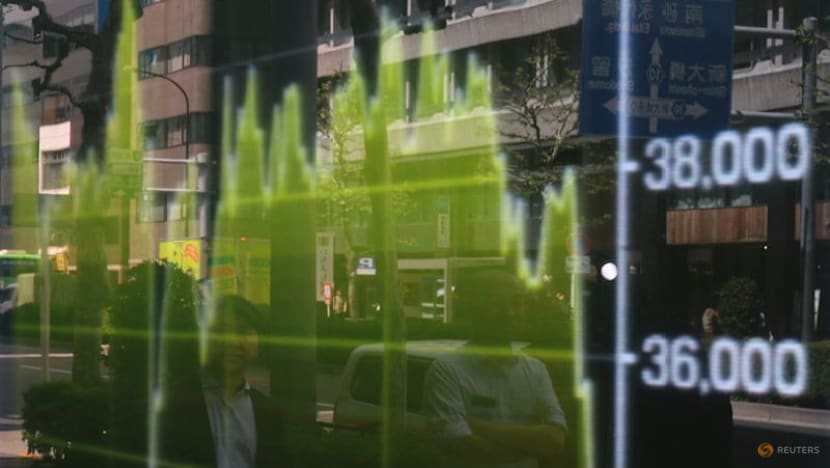Asian equities see first monthly foreign outflow in four months in August

FILE PHOTO; Pedestrians are reflected on a stock quotation board showing a graph of Nikkei share average outside a brokerage in Tokyo, Japan April 14, 2025. REUTERS/Kim Kyung-Hoon/File Photo
Asian equities saw sharp outflows in August as worries over U.S. President Donald Trump's tariffs weighed on the outlook for the region's exporters, while a weaker dollar added to margin pressures and competitiveness concerns.
Foreigners sold a net $8.8 billion of equities across India, Taiwan, South Korea, Thailand, Indonesia, Vietnam and the Philippines last month, according to data compiled by LSEG, ending a three-month buying streak.
Trump last month imposed tariffs of 10 per cent to 50 per cent on importing goods from major trading partners, including 50 per cent on India, 20 per cent on Taiwan, 19 per cent on Thailand and 15 per cent on South Korea.
While Asian exporters had passed most of the tariff costs to the U.S., margin compression is likely in the months ahead as reciprocal tariffs rise further, Nomura said in a report.
Indian equities led the regional outflows as foreigners ditched local shares worth approximately $4 billion, the most for a month since January.
Some analysts expect India's consumption-focused tax rate cuts this month in response to U.S. tariffs would help revive demand for Indian equities.
Foreign investors sold Taiwanese stocks worth $2.05 billion, $1.63 billion of Vietnamese shares, $1.06 billion of South Korean equities and $709 million of Thai stocks last month. Indonesian equities, however, bucked the trend with $676 million of net foreign inflows.
Asian shares rallied this week, led by technology stocks on bets that U.S. inflation data will be tame enough to ensure a rate cut next week by the Federal Reserve and possibly two more by 2025-end.
However, analysts flagged concerns over stretched valuations in regional stocks after a recent rally pushed them above 10-year averages. At end-August, the MSCI Asia ex-Japan index was trading at a forward price-to-earnings ratio of 14, a four-year high.
"Although the Fed rate-cut cycle is a tailwind, we expect a pause in market re-rating on waning incremental support from the dollar. Upside should mostly come from earnings growth," Societe Generale's head of Asia equity strategy Frank Benzimra said.













